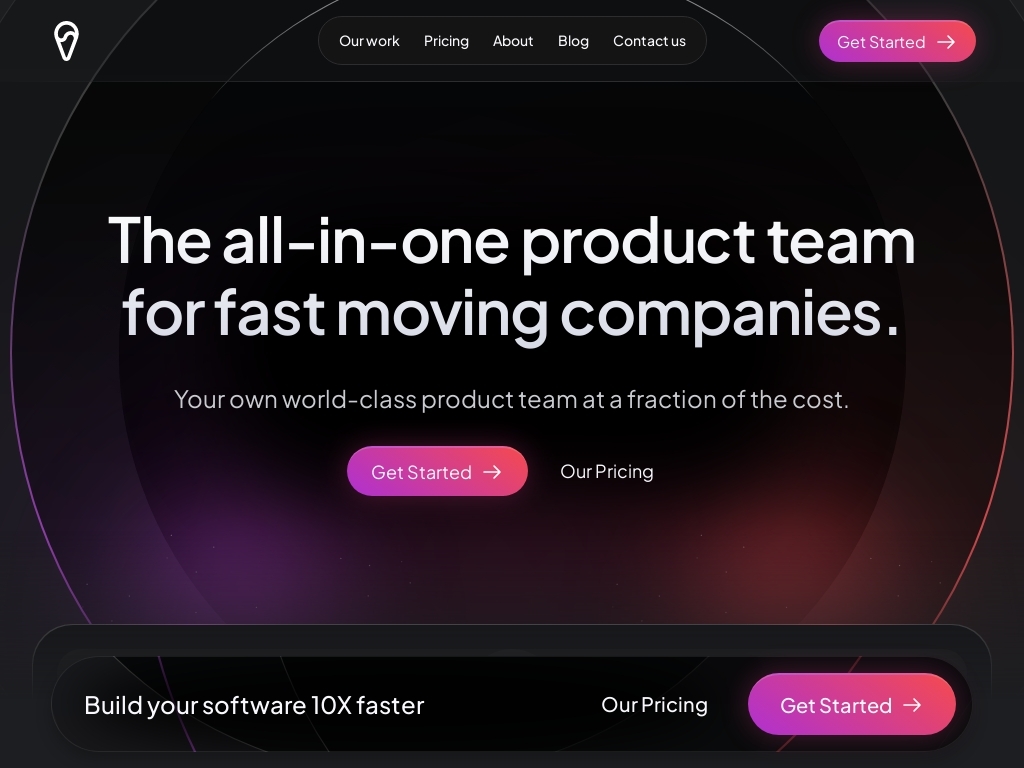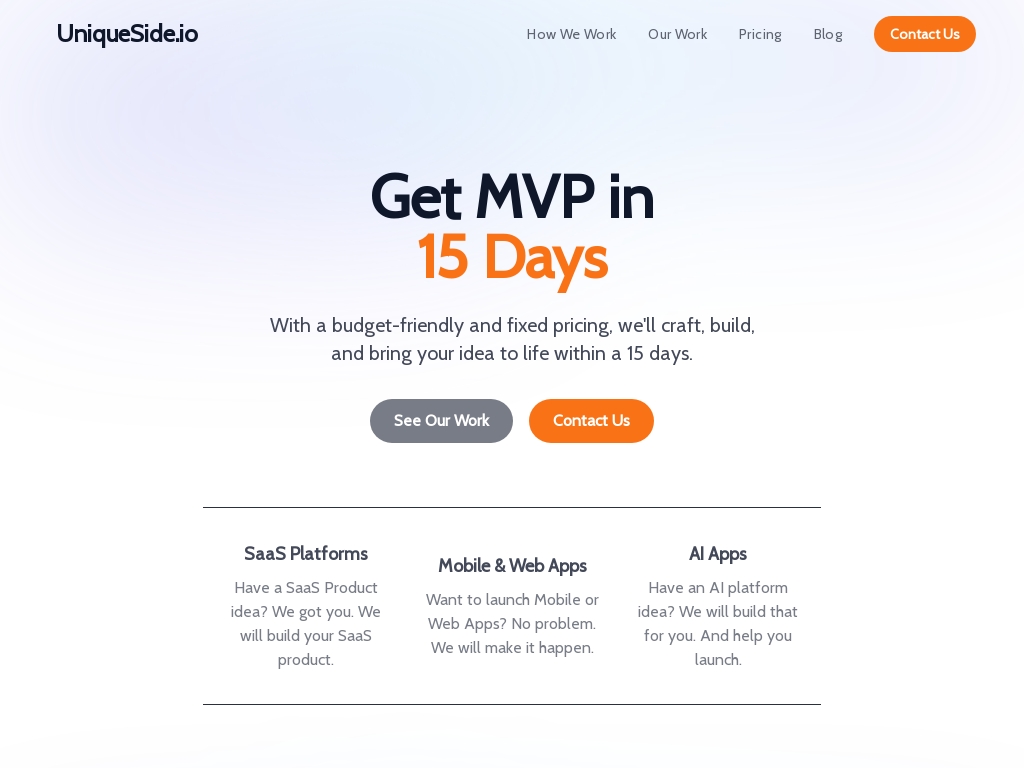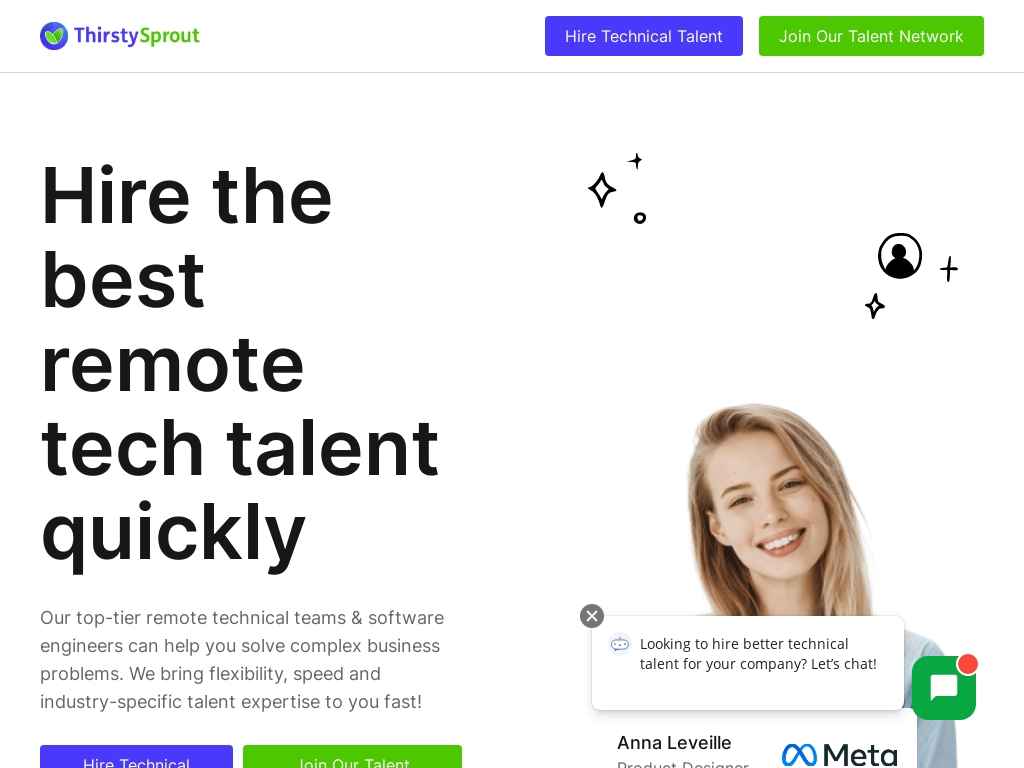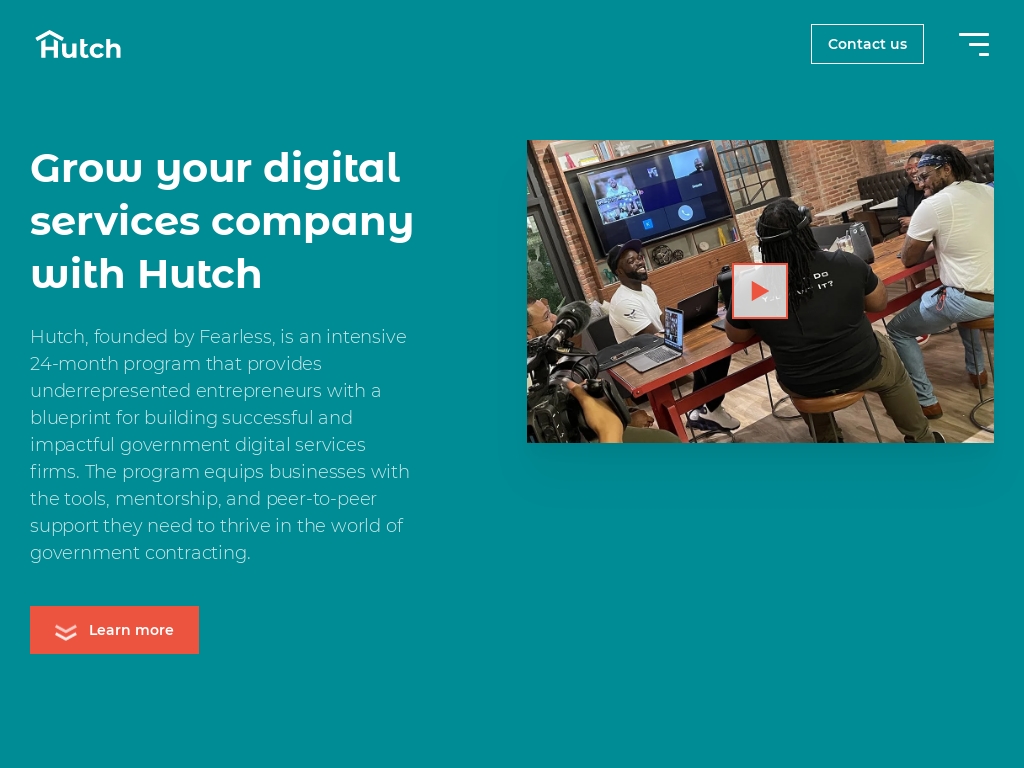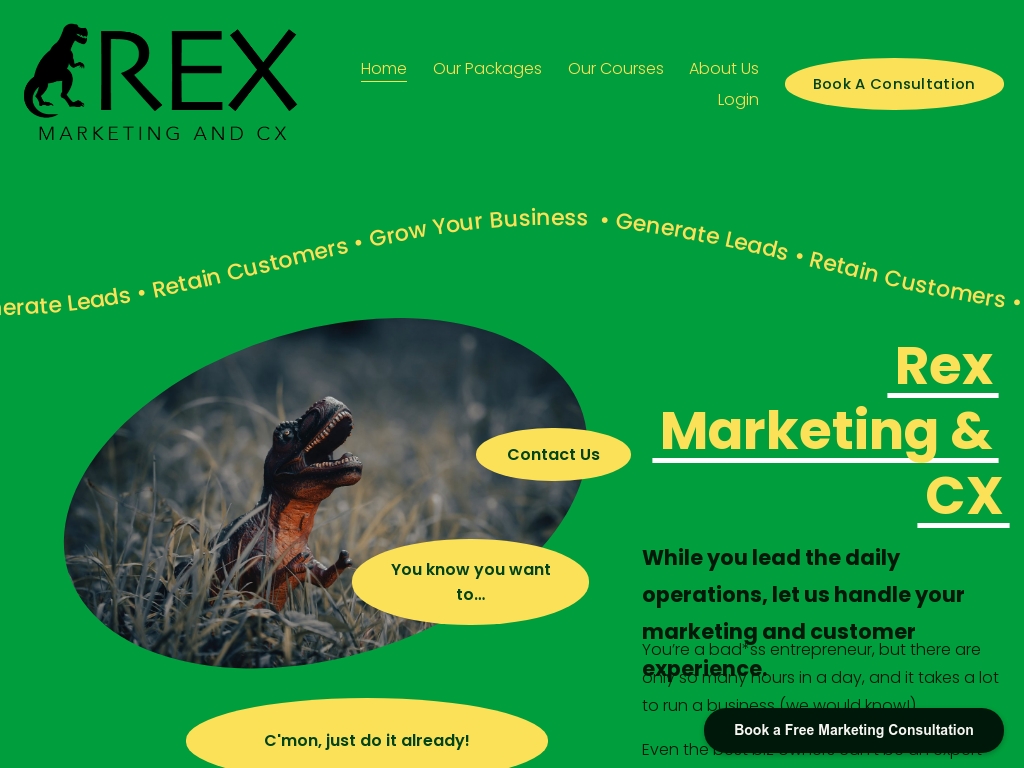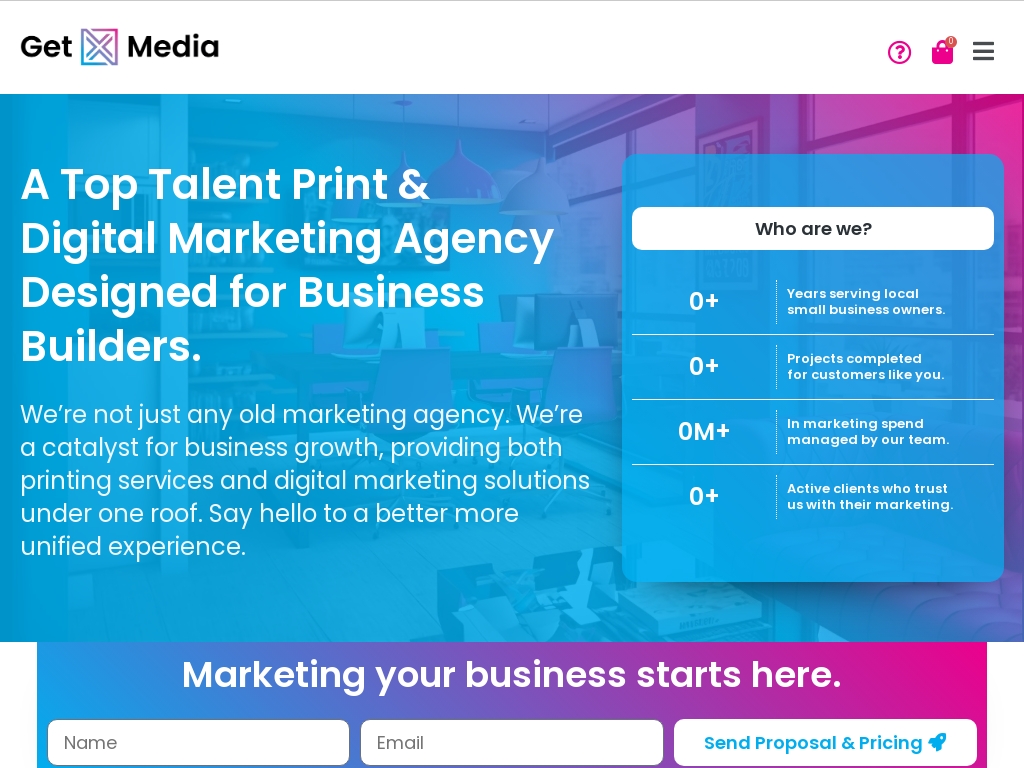
My Developer Hiring Platform Makes $85K/Month
Who are you and what business did you start?
My name is Moummar Nawafleh and I’m the co-founder of DevSignal.co
DevSignal helps startups and growing companies hire top-tier remote software engineers in under 24 hours. We built a network of 700+ vetted engineers from around the world, each ready to ship quickly and thrive in fast-paced startup environments. Since starting, we’ve worked with early stage startups all the way up to unicorns. Every engineer we vet goes through a manual review to make sure they meet our bar. In under 16 months we reached the $1M ARR mark, fully bootstrapped with a team of five
We wanted founders to focus on building and leave the headache of sourcing, vetting, and compliance to us. All they need to do is share what they’re looking for in a developer. We handle the rest. We send handpicked profiles in under a day. They interview, start a free trial period full covered by us, and keep building.
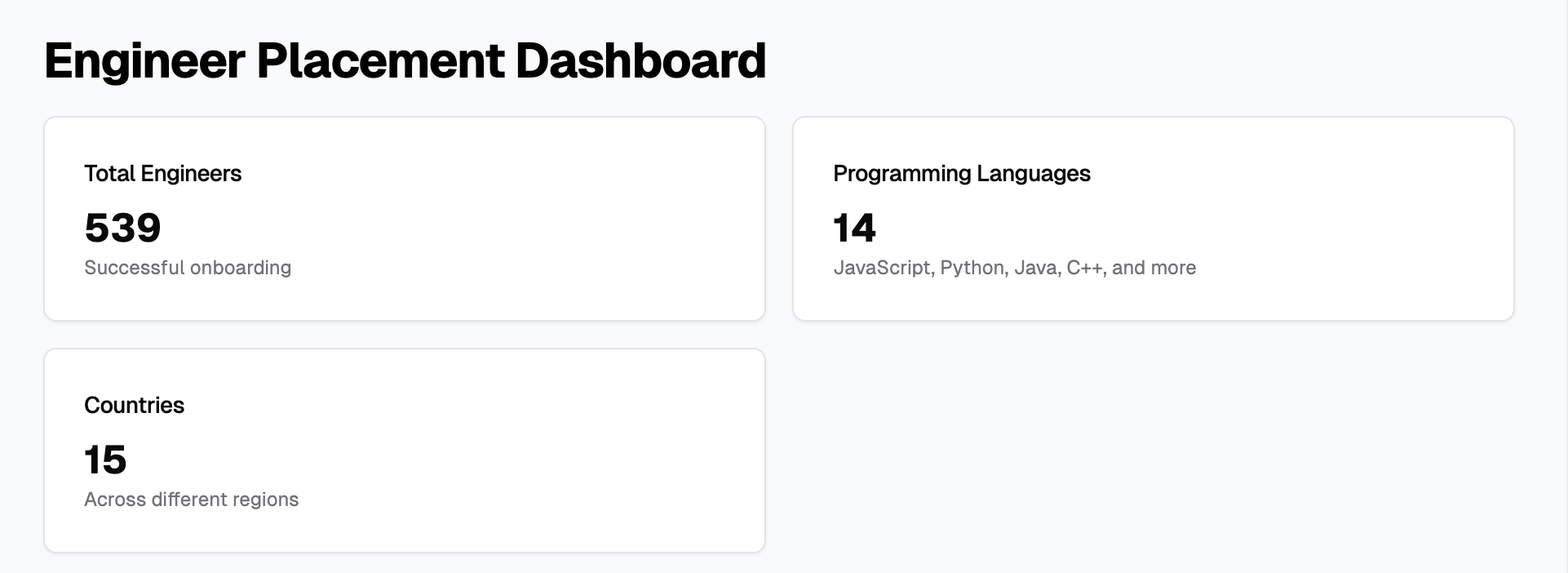
Successful Placements
How do you come up with the idea for Devsignal?
DevSignal started out of necessity. When my co-founder Sergio and I were trying to build our previous startup, we realized how expensive and difficult it was to hire top talent. We both grew up outside the US, so we reached out to our networks back home but soon discovered the challenges of finding and vetting engineers remotely, plus the complexity of managing country-specific compliance and global payroll. We were always engaged in startups communities in LA and realized most founders had the same issue. They were building fast and needed to ship even faster - but constantly struggling to hire strong engineers. Either they couldn’t afford top talent locally, or they’d waste weeks interviewing developers who looked good on paper but couldn’t keep up with startup demands.
We looked at the the other nearshore hiring platforms and realized most of them either threw resumes at you or weren’t built with startups in mind. No one was vetting for real-world problem-solving, speed, or adaptability-the stuff that actually matters in a startup. Or as we put it someone that has drive as big as the chaos of a startup. Not a single one of them had a personal touch, they all seemed transactional.
We built connections in regions we found great talent in, and got creative with our vetting process to allow us to assess technical skills, communication, cultural and startup fit. Once we had a couple of engineers we would trust for our own startup, we began manually matching a few of them with founders we already knew. To show faith in our vetting process we offered to pay for the first week as a trial period. Which is something we take pride in and do till today. That turned into our first few customers. From there, we built out our team and processes to keep the same personal touch at scale.
Compared to past ideas, this one had real pull from the market. Founders were hiring fast, and coming back for more hires. That was the validation. We built the solution we wanted so it felt like we were solving a painful problem, not convincing people to care.
How did you launch Devsignal and get initial traction?
We never had an official launch. We just started by helping people we knew. Our early traction came from startup communities and personal connections. A lot of our friends were building startups and dealing with the same hiring problems we had, so we jumped in to help. It took about four weeks to make our first dollar—working with a founder friend who’s still a customer today.
I always say: you don’t have a business until someone pays you. Instead of getting distracted by landing pages or business plans, our only goal was to prove the model worked. Nothing else mattered until then.
Every day, we focused on two things: talking to founders and vetting engineers. That was it. I see a lot of people get stuck overthinking—when the answer is usually to get in front of people, solve a real problem, and get paid to do it.
What was the growth strategy for Devsignal and how did you scale?
Most of our early growth came from building real relationships and delivering when it mattered. We took PG’s “do things that don’t scale” to heart. Every founder we worked with had our number. They’d text or call anytime they needed something. We’ve since moved to shared Slack channels, but that same responsiveness still defines us
By staying close to our customers, we kept iterating on the experience until founders genuinely loved the process. That set the stage for our two biggest growth engines—referrals and word of mouth. In tight startup circles, news travels fast, especially when something works
From there, we leaned into it. We launched referral programs for founders, angel investors, and venture studios. We also continued partnering with startup communities and VCs to give their portfolios access to vetted talent.
Once we had our first few wins, we doubled down on helping our customers grow—then asked if they could introduce us to others. One founder led to five. One venture partner led to an entire portfolio. And we partnered with startup communities and VCs to give their portfolios access to vetted talent.
Twitter helped a lot too. Showing up daily, sharing the journey, being transparent—that created trust and opened a ton of doors
We also set aggressive goals. One of them was landing a “whale” every month. Took longer than we thought, but after months of conversations, we signed a deal with one of the biggest AI labs in SF to help them hire 500+ engineers across many tech stacks.
Along the way, we realized some founders needed more than just engineers. They wanted full solutions - teams that could own product delivery end to end. Instead of turning that business down, we partnered with trusted PMs and fractional CTOs to offer full-service development when it made sense. That flexibility let us grow with our customers and capture opportunities others would have passed on and unlock a new customer segment
My advice for founders would be to treat growth like an experiment. You won’t know what works until you try it. The key is to have a bias for action. Test, learn, and double down on what clicks. Your network is one of your most valuable assets. If you don’t have one, start building it now, online or in person. It compounds fast
What were the biggest lessons learned from building Devsignal?
We almost didn’t start this company. It felt like the right time had passed. COVID seemed like the window for remote hiring, and by the time we were ready to build, the space felt crowded. But once we tried using other platforms, we saw how broken the experience was. That’s when it clicked—we could do this way better
One of the best decisions we made early on was starting small and listening closely. We literally had a whiteboard with everything we knew about the first companies we worked with, mapping out the pain points they shared and the solutions we were testing. It helped us stay focused on who we served best and why they kept coming back
The habit that made the biggest difference was staying close to the customer. Every founder we worked with had our number. We’d jump in whenever they needed us. That level of care built trust, and trust is what drives growth
When we started DevSignal, we didn’t expect to grow this fast. We just kept listening, delivering, and doing the work. We stayed focus on customer experience and went all in, the results took care of themselves.
We’re huge believers in AI. Most of our customers are building AI products or training AI models. We make sure every engineer we work with knows how to use AI to ship faster and smarter. We invest in ongoing training so they stay sharp on the latest tools. But when it comes to vetting, we’ve taken a hard stance that AI shouldn’t make hiring decisions. That’s still a human call. We build real relationships with our devs and our customers. We get to know them. That’s how we know who’s truly a fit for a startup environment
That might not be where the rest of the industry is headed. But sometimes being contrarian is exactly what keeps the quality high
If you’re starting out, don’t get stuck trying to build something scalable from day one. Solve the problem manually, prove it works, and scale from there. Most people fail because they never get close enough to the customer to build something that matters
We’re always happy to collaborate with like-minded builders. If you’re scaling and need engineering talent, feel free to reach out or learn more at DevSignal.co
Discover Similar Business Ideas Like Devsignal
|
|
Idea
|
Revenue
|
|---|---|---|
|
Creme Digital
|
No-code software solutions for startups and enterprises.
|
$100K
monthly
|
|
UniqueSide
|
Founder-friendly MVP software development service.
|
$10K
monthly
|
|
ThirstySprout
|
AI-driven remote tech talent matching platform.
|
$300K
monthly
|
|
Hutch
|
Incubator program for minority-led government tech firms.
|
$6.8K
monthly
|
|
Ecomtent
|
AI-Driven Product Listing Optimization for E-commerce Sellers
|
$7.96K
monthly
|
|
Rex Marketing a...
|
Growth marketing and no-code solutions for startups.
|
$10K
monthly
|
|
Get X Media
|
Digital marketing and design solutions for B2C businesses.
|
$15K
monthly
|
More about Devsignal:
Who is the owner of Devsignal?
Moummar Nawafleh is the founder of Devsignal.
When did Moummar Nawafleh start Devsignal?
2024
How much money has Moummar Nawafleh made from Devsignal?
Moummar Nawafleh started the business in 2024, and currently makes an average of $1.02M/year.

Download the report and join our email newsletter packed with business ideas and money-making opportunities, backed by real-life case studies.

Download the report and join our email newsletter packed with business ideas and money-making opportunities, backed by real-life case studies.

Download the report and join our email newsletter packed with business ideas and money-making opportunities, backed by real-life case studies.

Download the report and join our email newsletter packed with business ideas and money-making opportunities, backed by real-life case studies.

Download the report and join our email newsletter packed with business ideas and money-making opportunities, backed by real-life case studies.

Download the report and join our email newsletter packed with business ideas and money-making opportunities, backed by real-life case studies.

Download the report and join our email newsletter packed with business ideas and money-making opportunities, backed by real-life case studies.

Download the report and join our email newsletter packed with business ideas and money-making opportunities, backed by real-life case studies.
